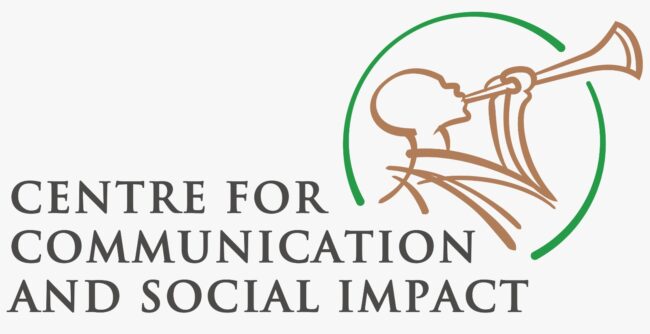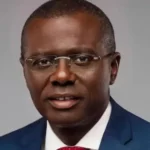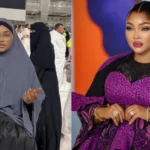In a call to address the pervasive issue of gender-based violence (GBV), the Centre for Communication and Social Impact (CCSI) has issued a rallying cry for unified action to combat this pressing societal challenge.
To foster collaboration and create a collective impact, CCSI organised a Youth Dialogue webinar tagged Voices Against GBV, urging individuals, communities, and organisations to join forces in the fight against GBV.
The call for a unified front underscores the gravity of the issue and the need for coordinated efforts to bring about lasting change.
The event brought together esteemed speakers, including CCSI’s Executive Director, Mrs. Babafunke Fagbemi, public health expert Dr. Matthew Okoh, and Dorothy Njemanze, Executive Director of the Dorothy Njemanze Foundation.
The Executive Director, Centre for Communication and Social Impact, Mrs. Fagbemi, emphasised in her address that GBV is a pervasive issue that demands a unified response.
She stated, “GBV is everyone’s problem; therefore, we must approach the solution in the same manner.
“It doesn’t discriminate against race, tribe, colour, or class; everyone is affected. So sometimes I wonder why we even set aside 16 days of activism when every day should be dedicated to making sure that no one suffers from gender-based violence.”
Speaking on the crucial issue of breaking the silence, Mrs Fagbemi urged participants to not only speak up but also take concrete actions. “I’m really excited about the theme for this year’s Unite campaign, which is to invest to prevent violence against women and girls. Beyond speaking up and challenging the status quo, we should report issues of violence when we witness any.
“Despite the depressing statistics that claim that according to WHO, globally, 1 in 3 women have been subjected to either physical or sexual violence, and in Nigeria, 1 out of 10 women aged 15 to 49 have suffered sexual assault at least once in their lifetime, I would like to invite you to speak up.”
Dr Matthew Okoh, a distinguished public health expert, addressed the imperative of empowering men to speak up against GBV and their struggles.
He said, “It is easier for a female to report issues of violence against them compared to men because of several reasons. Chief among these is society’s expectation, where men are told to be tough and appear invincible.
So admitting that they have suffered violence of any kind will make them appear to be falling short of that expectation of society.
Expressing your vulnerability is undoubtedly a significant barrier because no one wants to be seen as weak because of the box, the society. This has greatly contributed to the reason why there are little to no statistics of gender-based violence against men.”
“Men are most likely to commit suicide or die from suicide because they are not able to express what’s on their mind, and that’s because society has made them feel about who a man is and what a man should or should not do.” He said.
His insights shed light on the importance of breaking societal norms that silence male voices in the discourse on gender-based violence.
“Now, what can we do to change this scenario? How can we move this forward? One, we need to encourage men to begin speaking up about violence against them by addressing societal norms that tend to keep men from speaking up. We need to reduce the stigma associated with men who come out to express what has happened to them by creating a supportive environment that can encourage men to speak out.”
Dorothy Njemanze, the Executive Director of the Dorothy Njemanze Foundation, shared profound insights into navigating the current landscape of gender-based violence.
As a front-line responder, she emphasised the need for collective action to stem gender-based violence. She addressed the pressing need for comprehensive systems and government support for survivors of gender-based violence.
She also brought attention to the multifaceted challenges faced by survivors of GBV, passionately emphasising the importance of a holistic support framework that extends beyond immediate crisis intervention.
The Youth Dialogue Webinar served as a powerful platform for dialogue, education, and advocacy, reinforcing the urgency of collective action in the fight against gender-based violence.
The event sparked a commitment among participants to go beyond discussions and actively contribute to creating a world free from the shadows of gender-based violence.
YOU SHOULD NOT MISS THESE HEADLINES FROM NIGERIAN TRIBUNE
COP28 delegates: Invest in production, not frivolities, Peter Obi knocks Tinubu
Peter Obi, the presidential candidate of the Labour Party (LP) in the 2023 general elections has reacted to the long list of delegates that travelled with…
I studied for seven hours daily for four years — ACU best graduating student
To attain great academic success, the best-graduating student at Ajayi Crowther University for the 2022–2023 academic session, Susanna Akinteye, has…
CBN will freeze your accounts if you don’t link your BVN-NIN
The Central Bank of Nigeria (CBN) has said that all accounts without the Bank Verification Number (BVN) and…
How housewives are coping with exorbitant cost of pepper
YEJIDE GBENGA-OGUNDARE reports that in addition to significant increase in cost of food items, many Nigerian homes that…
Service chiefs on national security
SPEAKING at the Green Chamber when he led service chiefs to address parliamentarians on pertinent security issues last week, the Chief of…
Gusau outlines 2030 vision for Nigeria football development
President, Nigeria Football Federation (NFF), Ibrahim Musa Gusau, has outlined his plan for…






